PBS: Escaping Eritrea … [Read More...] about ካብ ውሽጢ ቤት ማእሰርታት ኤርትራ
In Pursuit of the African Dream
Ty McCormick | August 19, 2016 | Foreign Policy
Two brothers risked everything for a better future thousands of miles from home. Their crushing story of failure reveals a continent’s broken immigration system.
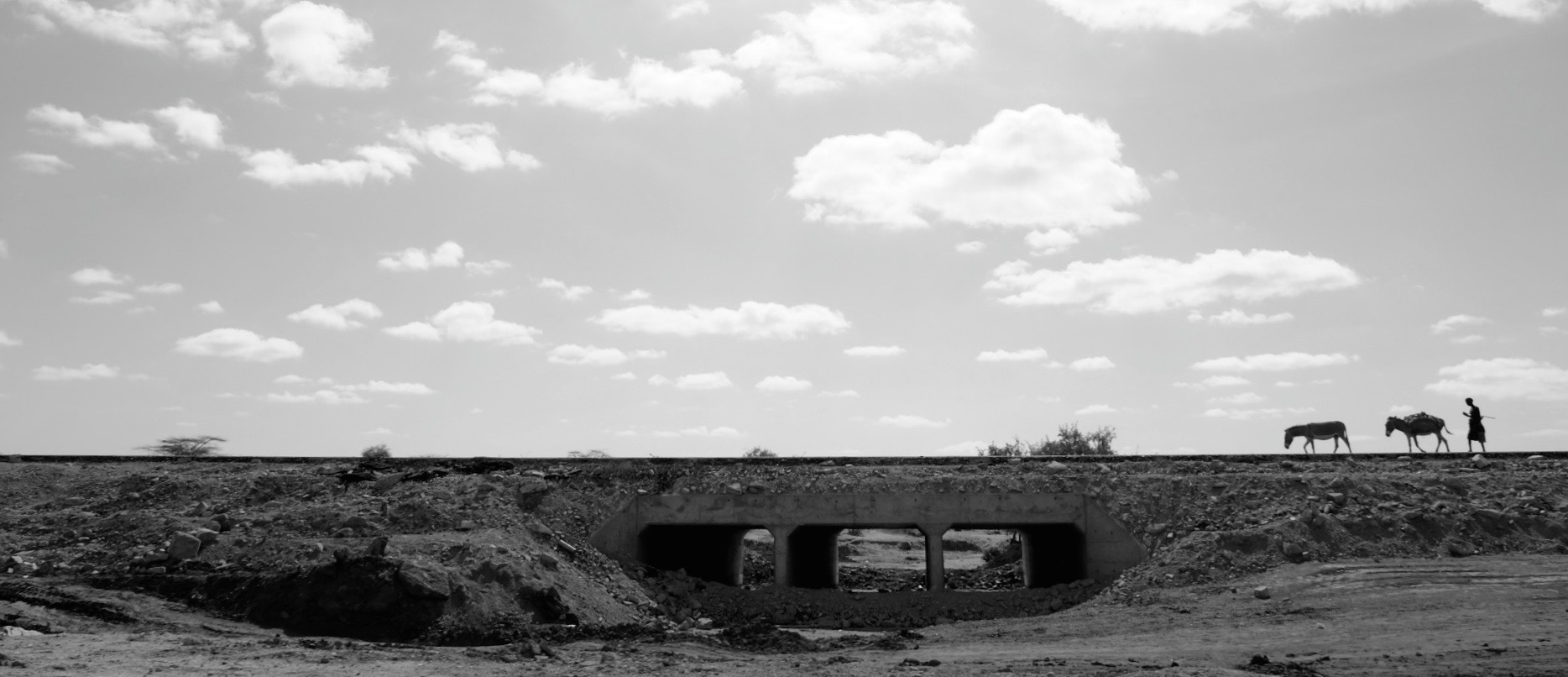
MOYALE, Kenya-Ethiopia border — Tears slipped down Mishamo Hosiso’s cheek as he trudged silently through the desert. Four slender frames moved through the darkness in front of him, seven behind. All were barefoot, all slowly losing hope that the gamble of a lifetime would pay off.
There had been warning signs, but Mishamo had pushed them from his mind. His family was counting on him. They had paid smugglers nearly $4,000 — roughly 10 times what they made in a year on their one-hectare farm — to ferry him to South Africa, a place he knew little about but thought to be flush with opportunities unimaginable in his native Ethiopia. A week prior, he had dreamed of making a fortune and building a house. Now, as he made his way across the dry, porous border into Kenya — the first leg in a 2,500-mile journey that he expected to take 15 days — it was clear he had stepped into a nightmare instead.
Things went wrong almost immediately. The smugglers, having herded him and 11 other migrants into one of the many dirt roads that crisscross the low, asperous hills between Ethiopia and Kenya, beat them savagely as soon as they were in the wild. Then they stole all of their belongings, right down to their shoes.
What happened over the next week Mishamo remembers as a series of murky flashbacks. There was the seemingly endless trek through 100-degree heat. The ride in the back of a battered white lorry, pressed so tightly against the other migrants that he couldn’t move his arms. Then there was the cluttered encampment beneath a highway overpass where they waited for a second truck. It was full of heavy machinery: steamrollers, graters, massive bucket loaders. The smugglers called the place “China Camp,” a reference to the Chinese laborers at work building a new highway.
Mishamo and the other migrants were told to climb into a cement drainage pipe and hunker down so they wouldn’t be visible; the new truck would collect them the following night. But two days passed and then three. When a Chinese foreman wandered past the drainage pipe and spotted them down below, he thought they might be members of the Somali militant group al-Shabab — or at least that was the jail gossip Mishamo heard later. The foreman called the police, who arrested everyone.
His first night behind bars, Mishamo kept replaying a pair of phone conversations he had had before setting out across the Kenyan border. One was with Mengistu, a friend from grade school who had already made it to South Africa and promised to help him find a job. The other was with his older brother Abraham, whose unsuccessful attempt to reach South Africa had ended in similar fashion the previous year.
“I’m leaving tonight,” he had told his brother. “It might be awhile before I can call you again.”
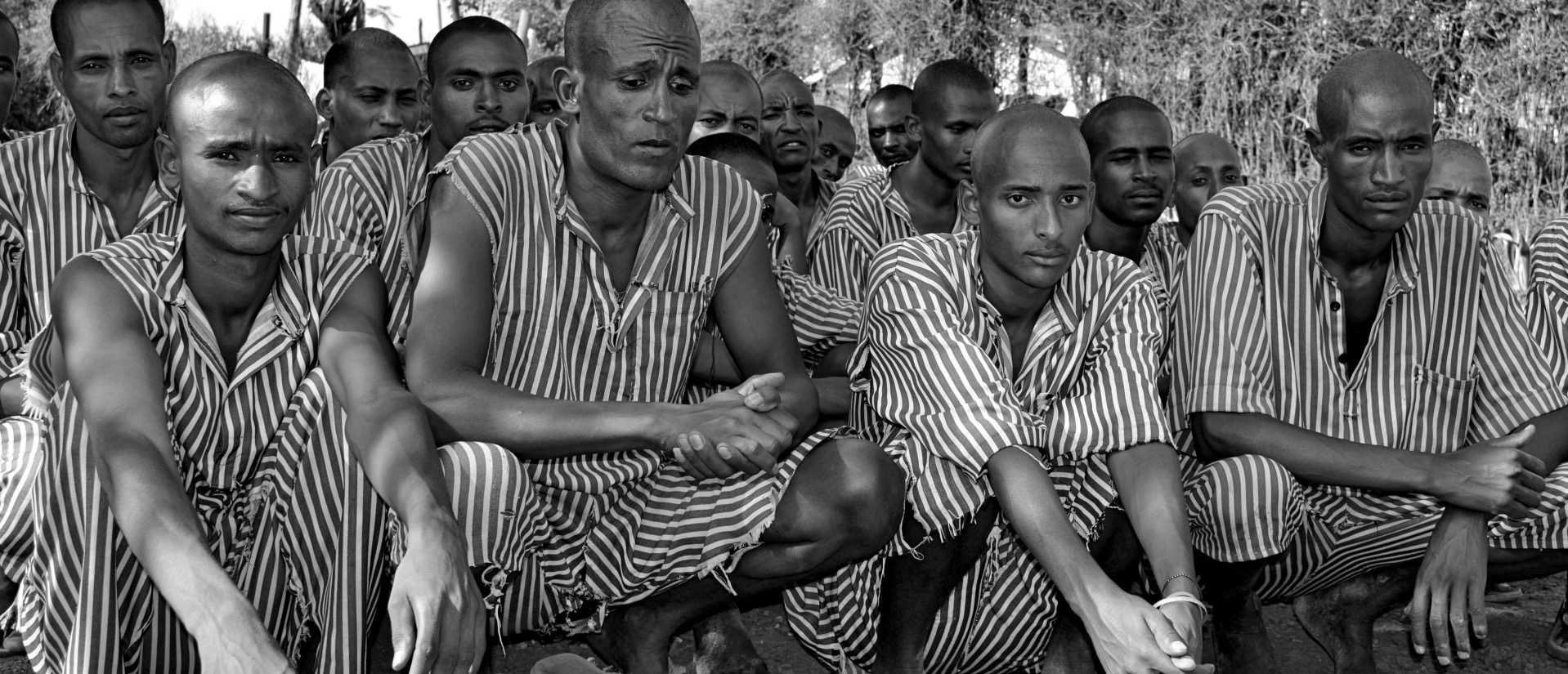
As Europe confronts its biggest wave of migration since World War II, there is a sense that the world’s dispossessed have suddenly uprooted themselves en masse to knock at the doors of developed nations. The images are ubiquitous: desperate Africans and Middle Easterners packed into sinking boats, risking everything to escape calamity and war. That picture has rightly jolted the world to attention. But it has also given a false sense that Europe is at the heart of the global migration crisis.
Thousands of miles from the chaotic detention facilities of Lampedusa, Italy, and Calais, France, there is another, much larger migration crisis that is taking place entirely within Africa. Like Mishamo and his brother Abraham, the vast majority of African migrants aren’t traveling to Europe but to another country on the continent. In 2000, the last year for which the World Bank’s Global Bilateral Migration Database has numbers, fully 75 percent of African migrants lived in another African country while only 16 percent lived in Europe.
One of the most well-traveled migrant routes runs from the volatile Horn of Africa region to South Africa, by far the continent’s most developed economy, which has become a magnet for fortune-seekers from across Africa despite rising unemployment and xenophobia. Experts call it the “Southern Route,” and as many as 20,000 people take it each year, according to a 2009 study by the International Organization for Migration. Many are Ethiopians, risk-takers like Mishamo and Abraham. Some hit it rich on the other end of the continent and return home to perpetuate the myth that South Africa is a Promised Land.
In Hosaena, the small town in southern Ethiopia where both brothers grew up, new houses sprout up practically every day. They are bigger and sturdier than the round mud-and-thatch dwellings that people used to live in — and it’s an open secret where people are getting the money to build them.
“It’s coming from men who found work in South Africa,” Abraham told me as our hired Land Cruiser swerved through a traffic jam of battered minibuses and plodding donkey carts. We turned off Hosaena’s main road onto a narrow dirt track leading to the countryside. Soon, Abraham, who has high cheekbones and a perpetually furrowed brow, was rattling off success stories. The brown stucco building to our right that housed a welder’s shop: financed with remittances from South Africa. The half-finished villa on our left with the imposing metal gate: paid for with South African money. The roadside shop selling fresh fruits and vegetables: South Africa once again.
People are leaving here because they can see for themselves what you can do in South Africa
“People are leaving here because they can see for themselves what you can do in South Africa,” he said. “It’s not a myth. It’s real, and you can see the evidence all around you.”
Far more often than they succeed, however, migrants from places like Hosaena have crushing stories of failure. The long trek south is fraught with potential pitfalls, some of them deadly. A dearth of legal avenues for moving among countries in Africa — particularly for unskilled laborers — has meant that most migrants rely on shadowy networks of smugglers and corrupt government officials that are “little more than mechanism[s] for robbing and murdering some of the poorest people in the world,” according to the U.N. Office on Drugs and Crime.
“Every day on the news we hear about migration to Europe,” says Caroline Njuki, the regional migration coordinator for the Intergovernmental Authority for Development, a regional bloc that includes Kenya and Ethiopia. “The Southern Route is highly neglected, and it’s just a matter of time before it really becomes a problem.”
Already, irregular migration to South Africa has carved a deep channel of abuse and corruption down the spine of East Africa. Dozens of migrants have died of asphyxiation in the backs of trucks or perished in boat accidents in the Indian Ocean and on Lake Malawi. Hundreds and perhaps thousands more — there is no official tally — languish in jail in transit countries along the way, guilty of the crime of believing they deserve more than their impoverished countries have to offer.
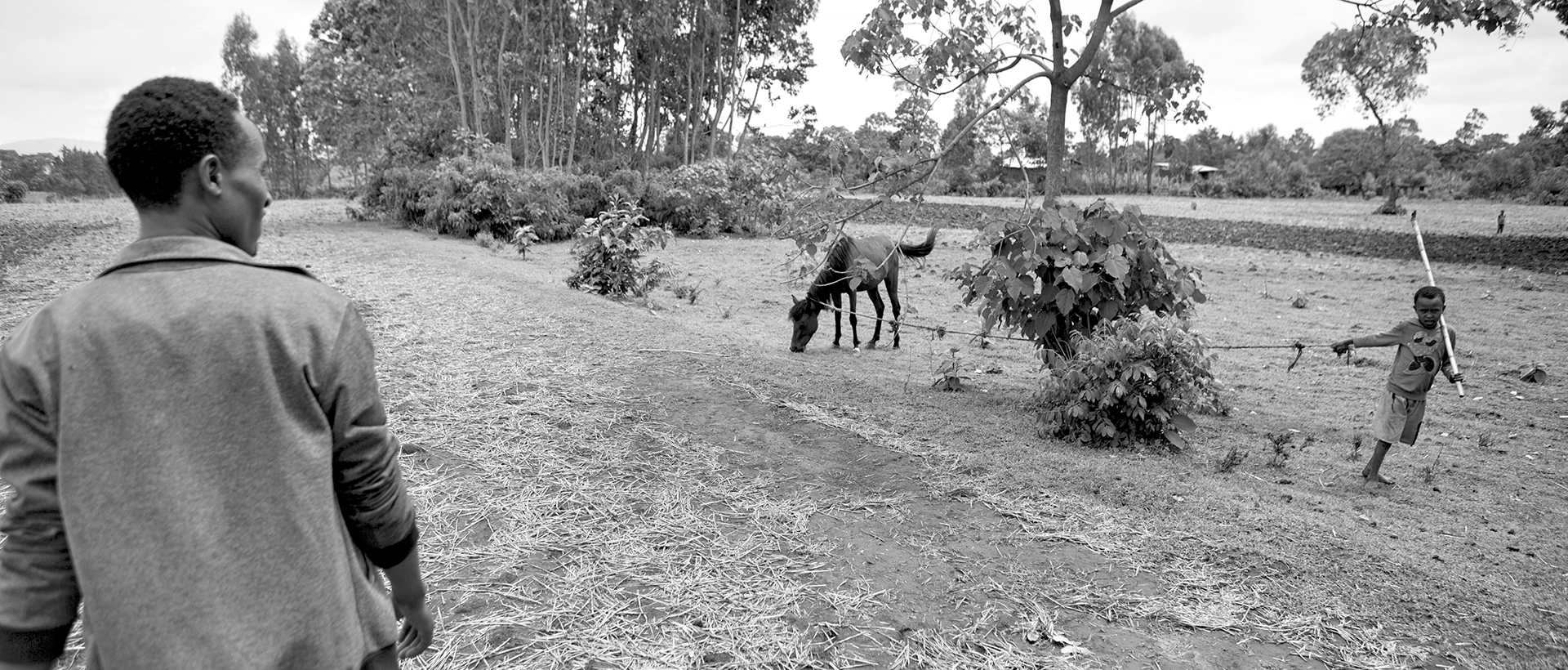
Like many migrants from rural Ethiopia, Mishamo’s and Abraham’s abortive journeys to South Africa really began 140 miles from Hosaena in the shimmering Ethiopian capital. Addis Ababa, which rises unexpectedly out of the montane forests of the country’s central highlands, has the look and feel of a giant construction site. It’s a sea of heaving cranes, rickety scaffolding, and belching Ivco trucks. Each day, it seems, the city sucks a little more of the surrounding countryside into its vortex, depositing a clutch of identical new apartment buildings here or an additional highway flyover there.
Thirty-two years after what the BBC famously described as a “biblical famine” claimed nearly a half-million lives, Ethiopia is wrapping up a decade of double-digit economic growth. It has the biggest airline in Africa, the largest hydroelectric dam project, and it mints more new millionaires each year than any other country on the continent. It has made massive infrastructure investments, dramatically expanded primary education, slashed infant mortality, and lifted millions out of poverty.
But the same powerful forces that transformed Addis Ababa into a monument to progress have also caused unprecedented social dislocation, uprooting millions of people. The government has inflamed ethnic tensions with its aggressive urban development schemes, and cracked down violently on protesters. According to rights groups, it has killed nearly 500 demonstrators in the Oromia and Amhara regions since November 2015 alone. It has also leased vast tracts of land to commercial agriculture ventures and sent the previous residents packing.
Those unmoored by the rapid pace of development have streamed into the capital, and live alongside those uplifted by the nation’s progress. Beneath the glistening new high-rises and posh five-star hotels, often separated by mere feet, unfurls an avalanche of listing hovels whose rusty metal roofs are held in place by heavy stones. Their inhabitants are a teeming underclass whose hunger for prosperity is heightened by its proximity to it.
This is the world Abraham entered five years ago when he left the village outside Hosaena to see if he could make something of himself. Like millions of others, he struggled to find work. He woke up early and waited at a traffic circle where contractors picked up day laborers. Some days he earned 50 or 60 birr (between $2 and $3) doing finishing work at construction sites. Some days he sat at the circle all day and never got hired.
Abraham wanted more. So he opened a bank account and began putting away whatever he could. One hundred birr here and there. After four years he had saved about $1,000. Then one day his sister sent him nearly $3,000 more from Kuwait, where she was working in the home of a rich Arab family. Finally, the South African dream felt within reach.
But Abraham’s journey south took nearly a year and ended in heartbreak. He spent six months stranded in Nairobi — the result of a dispute between smugglers — before taking the treacherous sea route to Tanzania. From there he was bundled into a truck bound for Malawi with nearly 100 other migrants. They were arrested soon after crossing the border, and he spent three months in a general holding cell in Lilongwe, the Malawian capital. He received one meal per day — porridge with beans — but was often too sick to keep it down. He was eventually deported back to Ethiopia along with several hundred of his countrymen, one of whom died en route.
Many of the smuggling networks in southern Ethiopia abide by an informal three-strike policy. If you don’t make it to South Africa on your first or second try, they will smuggle you again for free. After his ordeal, Abraham wasn’t interested. But his brother Mishamo knew about the policy and begged for permission to go in his place.
“He wouldn’t let it go. For him it was about the money we had already paid,” Abraham said. “I told him not to go. He didn’t understand because he hadn’t experienced it. When I told him what I experienced, he didn’t really feel it. It wasn’t real to him.”
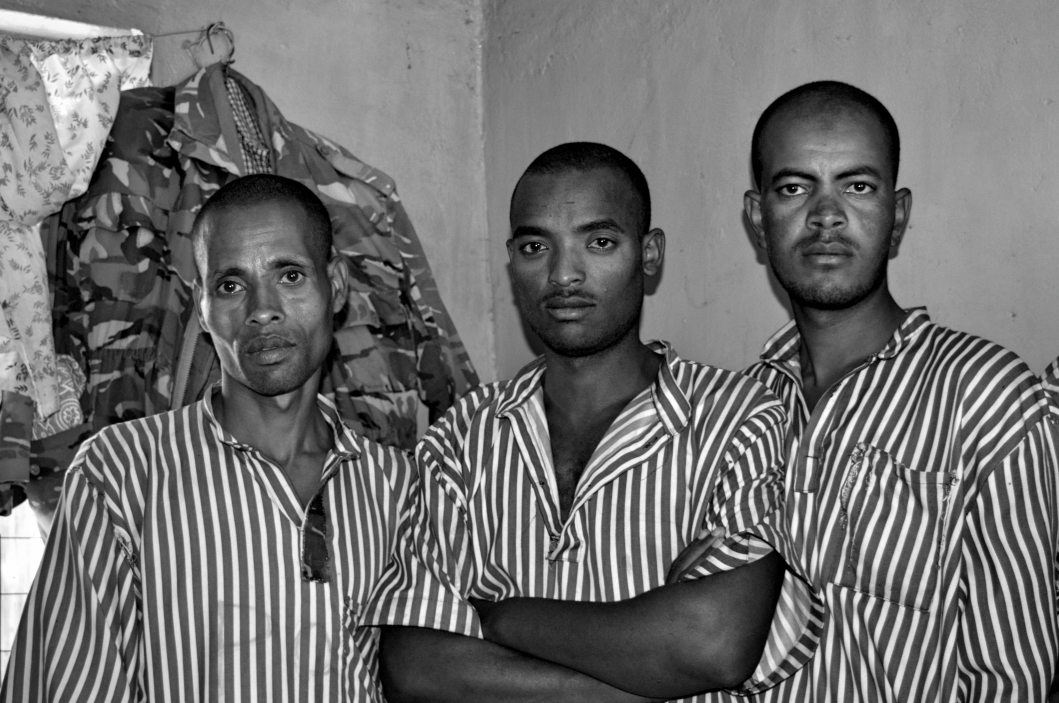
When I met Mishamo in the Marsabit County Jail, about 150 miles south of Moyale in northern Kenya, he had been there for a little more than a month. He had been sentenced to a year in jail. But he hadn’t been given an opportunity to contact his family, so nobody knew where he was.
Mishamo, who is 24, is short and stocky for an Ethiopian. He has wide brown eyes, a blunt nose, and lips that curl down slightly so that he often looks as if he’s smirking. The day we met, he wore his V-neck jail jersey open in the front so that a puff of chest hair was visible above the hem.
He speaks Amharic, the national language of Ethiopia, and his tribe’s local language, but not Swahili or English, Kenya’s two official languages. He said a translator had been present for the beginning of his trial on Feb. 16, when records from the Principal Magistrate’s Court in Marsabit show that he was convicted of “being illegally present.” But by the time the magistrate had sentenced him to a fine of 100,000 Kenyan shillings (roughly $1,000) or a year in jail, to be followed by deportation, the translator had departed for the day. Court officials must have assumed he wouldn’t be able to pay the fine, he told me, because they shuffled him back to jail without asking. (Kenya’s Ministry of Interior did not respond to multiple requests for comment.)
Mishamo is not the only migrant to have disappeared into the Marsabit County Jail. (Ethiopians are allowed visa-free entry to Kenya for up to 90 days, but only with a passport or other identifying papers that most poor migrants trying to make it to South Africa lack.) Of the more than 20 Ethiopian inmates I interviewed at the jail, none had been given a chance to reach out to friends or family members who might have been able to pay to have them released. Six of them scribbled the mobile phone numbers of loved ones into my notebook, asking me to call them.
“Please tell my wife I will see her soon by the mercy of God,” said Trekeny Ashengo, who was two months into a one-year sentence and has a 2-year-old daughter back home.
Tell my family that I am alive. They will be happy just to know that I am alive
“Tell my family that I am alive. They will be happy just to know that I am alive,” said Shafi Erango, who was also serving a one-year sentence.
During the day, all the inmates do hard labor, breaking stones for use in construction and cutting wood with long metal saws in the courtyard of the jail, which is ringed with wire fencing and overgrown with shrubs. In his dimly lit office that looks out on the courtyard, the warden keeps a handwritten document on each of the inmates. Among other things, it lists their age, nationality, and the length of their sentence. Mishamo’s reads, “1 year … LABOR – BALLAST,” a reference to his new job crushing rocks into gravel that is used to make roads. (Perhaps some of it makes its way to China Camp for use on the new highway, Mishamo mused in our interview.) Further down, the document lists Mishamo’s brother Abraham as “N.O.K,” or next of kin. His mobile number is printed clearly in blue ink. Someone will call it, the warden told me, if Mishamo dies.
The number of people vanishing into jails on their way to South Africa is anybody’s guess. Last year, more than 400 were reportedly arrested before they reached Isiolo, a city about 150 miles south of Marsabit, where 80 Ethiopian inmates recently staged a hunger strike to protest their one-year sentences. Hundreds more were arrested in Nairobi and on the Kenyan coast, where migrants often take the same route Abraham did to Tanzania. Many hundreds of others — quite possibly thousands — are rotting behind bars in Tanzania, Malawi, Zambia, Mozambique, and Zimbabwe.
Once in custody, they must navigate badly broken legal systems that are already stretched to the limit. Some fall victim to extortion schemes by police and jail officials. Others are physically abused or denied medical care. “Generally speaking, there is a lack of legal protection for these people,” said Bram Frouws, the coordinator of the Regional Mixed Migration Secretariat, which monitors migration in the Horn of Africa region. “They are seen as illegals, and that almost automatically means they don’t have any protection.”
Those without documentation are in the worst position. Authorities may not be able to conclusively determine their country of origin — a legal requirement for deportation. “If there’s no way of returning you, then you are forgotten,” said Njuki, of the Intergovernmental Authority for Development.
Even when a migrant’s nationality is not in question, it can take months and even years for them to be deported. The Malawian government has admitted to detaining migrants long after their sentences were served because it lacked the resources to deport them right away. Frouws says this is not uncommon and that even when migrants are deported, they are rarely sent all the way back to their home country in accordance with international law. “If they are arrested in Tanzania, for example, they will be deported to Kenya. But of course they are still illegally in Kenya, so they will just be arrested again.”
Mengistu was hustling back to his shop in Alexandra, a hard-up township in Johannesburg where Nelson Mandela briefly lived in the 1940s, when his phone buzzed in his pocket. It was Mishamo calling from Moyale, on the Ethiopia-Kenya border. He was about to make the long and dangerous trip to join him in South Africa.
“God willing, I will reach you in 15 days,” Mishamo said.
Mengistu could detect a hint of apprehension in his old friend’s voice. The two knew each other well. They had gone to first through eighth grade together back in Ethiopia. As teenagers, they used to pick up the odd shift on the minibuses in town, hanging out the door to collect fares and bobbing their heads to the rap music blaring through the speakers. But Mengistu had his sights set higher than the bus business. As soon as he had the money to pay a smuggler, he was on his way to the border. He arrived in Johannesburg in 2011, one of 106,904 foreigners who claimed asylum in South Africa that year.
What he found was far from the Promised Land he had envisioned growing up. More than two decades after the end of apartheid, South Africa is still struggling to provide basic services like water and electricity to many of its citizens. Millions remain mired in poverty, and a quarter of the population is unemployed. Richard Ots, the chief of mission in South Africa for the International Organization for Migration, says the disconnect between migrants’ expectations and what they find in South Africa is the result of a deliberate misinformation campaign being waged by smugglers, particularly in southern Ethiopia. “The idea that is given is that the moment you arrive in South Africa, the streets are paved with gold; there is money hanging from the trees,” he said.
Not only is the reality much harsher, struggling South Africans have occasionally lashed out at foreign migrants, between 500,000 and 2 million of whom have arrived since 1994. As elsewhere in the world, these people are often tarred as criminals and freeloaders who are stealing jobs from native South Africans. Last year, the traditional king of the Zulus, South Africa’s largest ethnic group, referred to foreigners as “lice” and “ants” and demanded that they “pack up their bags” and leave. A wave of anti-immigrant attacks followed in which hundreds of shops owned by migrants were torched and at least six people were killed.
Mengistu found work in one such shop, run by other Ethiopians from near Hosaena. It survived last year’s xenophobic violence, he told me, but had been burglarized twice since then. One of his suppliers had also been swept up in a raid by security forces. Still, he encouraged his friend to make the trip. The streets may not have been paved with gold, but they still held more promise than the rutted dirt tracks of his ancestral village. Neither man thought to agree on a rendezvous point for when Mishamo would eventually arrive in South Africa — or even a rendezvous city. There were simply too many things that could go wrong between then and now, too few reasons to believe that things might actually go right.
The same skepticism was evident in Mengistu’s interactions with me. We spoke at length on the phone, through a translator, several times, and he eventually agreed to meet me in Johannesburg. But when I arrived at the appointed meeting place, a joint called Africa Café on the third floor of a chaotic Ethiopian marketplace on Jeppe Street in the center of town, a few blocks from the old headquarters of the African National Congress, he was nowhere to be found. I reached him again by phone, but this time he sounded wary. We set another appointment and again he didn’t show. When I tried him one last time, he said he couldn’t meet me. “Please don’t call this number again,” he said.
“These are people who have been taken advantage of and abused by virtually everyone, from smugglers to authorities to other migrants,” Dereje Fanna, who heads the Ethiopian Community Association of South Africa, told me. Fanna claimed asylum in South Africa 19 years ago and now helps other Ethiopians navigate the process. He said many new arrivals “don’t trust anyone.” He has helped people who “were trafficked, who had been kept in a room for three years, and they didn’t speak out.”
The South African government has exacerbated this trust deficit in recent years by stepping up its efforts to detain and deport what it calls “illegal foreigners” under the pretext that they pose a security threat. In practice, the term is applied indiscriminately to asylum applicants, refugees, and undocumented migrants, according to Roni Amit, a researcher focusing on migration at the University of the Witwatersrand in Johannesburg. Even the official response to the explosion of xenophobic violence last year followed this pattern. Instead of mobilizing to protect foreigners, the government launched a series of raids on immigrant neighborhoods and detained or deported thousands of people.
The nation that absorbed more asylum seekers than any other between 2006 and 2012 is increasingly turning its back on them. Yet the flood of indefatigable young men like Mengistu shows no sign of abating.
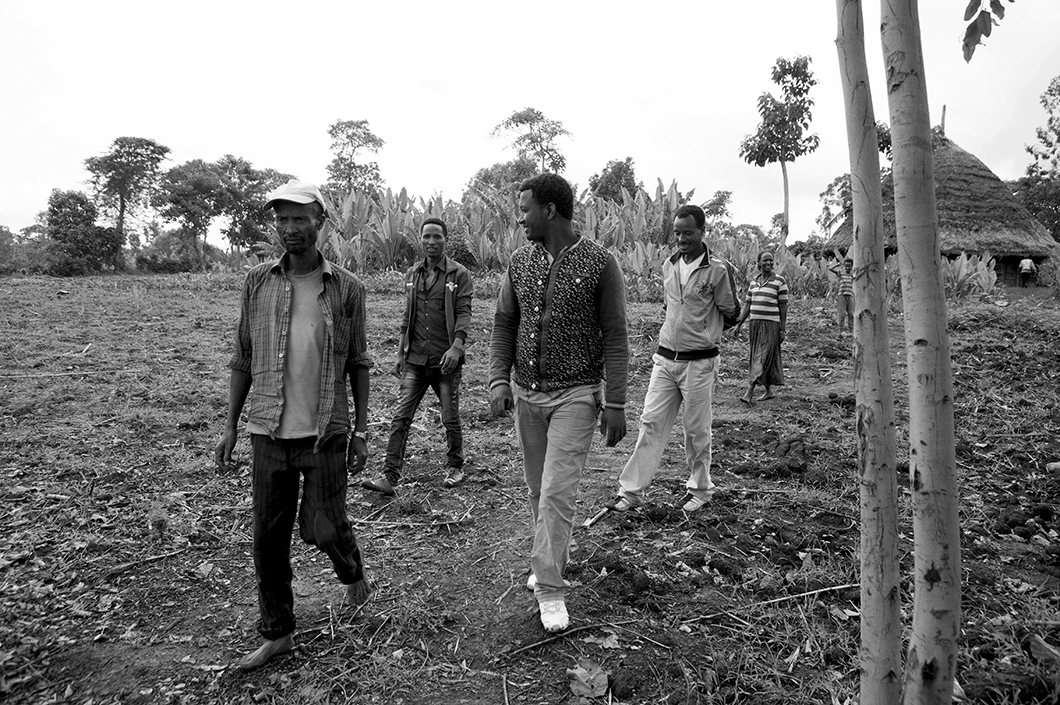
Abraham began to worry when he hadn’t heard from his brother in more than a month. He called Mishamo’s smuggler several times but couldn’t get through. Then one day a Kenyan number he didn’t recognize flashed on his mobile screen. It was the last thing he was expecting: A reporter calling from the Marsabit County Jail. Through a translator, I explained what I knew, that Mishamo was in jail but scheduled for release in February 2017.
I met Abraham a few weeks later in Hosaena. He is slighter than his brother and more withdrawn. One could easily believe that he is the younger sibling, although he is five years older. The two were inseparable as kids, he told me, walking to class together every day for the three years they attended the same primary school and turning farm work into games that would drive their father crazy. Sometimes, they would shirk their duties altogether and play tetherball around the base of a eucalyptus that was hidden behind a screen of false banana trees.
“I used to beat him every time when he was little, but then he grew up and started beating me,” he recalled, a hint of a smile curling about his sparse goatee. “There was less to worry about back then.” Now he has his aging parents to worry about, a brother and six sisters here in Ethiopia, and Mishamo behind bars in Kenya. “I may have to go back to Addis to work construction again,” he told me. “The farm isn’t big enough to support all of us.”
It was the same painful logic that compelled Abraham’s father, Hosiso Hankebo, to watch two of his sons set out on a journey he knew could take them away forever. A lean, careworn figure with deep wrinkles about his eyes and a patchy graying beard, Hosiso met us outside one of the family’s circular mud huts and bid us to enter through the rough-hewn frame that was missing a door. He hadn’t been expecting us, but he asked no questions and motioned for us to sit on a row of wooden benches that hugged the wall. On the opposite side of the dimly lit room were two beds made up with pink and blue duvets. Between them stood a table laden with pots and pans, above which a faded poster of Jesus prayed down from the wall.
Abraham introduced me as the reporter who had called with news of Mishamo. At first, the room grew quiet. Then everyone began speaking at once. My translator relayed the questions as best he could: How is his health? What is he eating? When will he get out? After imparting all the information I had, I took out my cell phone and pulled up a photo of Mishamo standing with some of his fellow inmates. It is a disturbing photo insofar as it shows a man shorn of his freedom. But it is also a silly photo, since Mishamo and the other inmates are posing awkwardly, almost as if they are members of a boy band shooting an album cover. I handed the phone to Abraham, who examined it before taking it around to show the others. Hosiso stared at it for a long time, grasping the phone between his arthritic palms. He didn’t say a word.
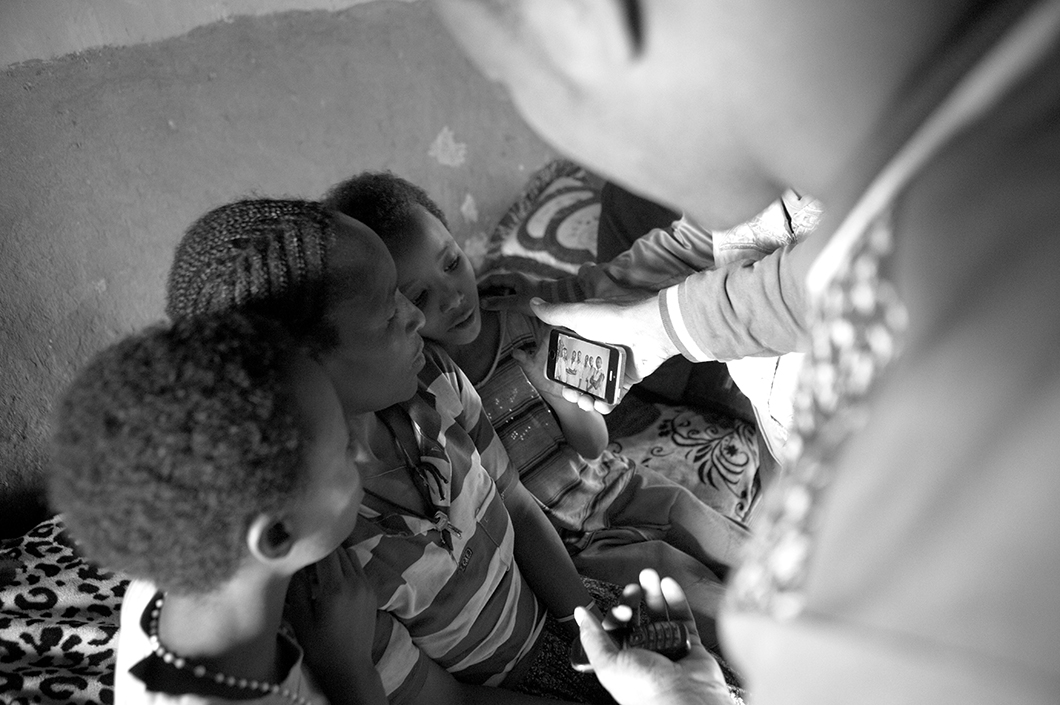
Later, he took me on a brief tour of his one-hectare plot. From the back of the two matching huts, the land sloped gently down toward a stand of cedars perched on the edge of a creek. The earth was dark brown where it had been broken apart by the till, and the first young shoots of wheat and teff were barely poking through the surface. Hosiso had inherited the farm from his father, who inherited it from his father before him. But weather patterns have changed since it passed into his possession, he told me, and now it’s producing less.
“Living in poverty is a terrible thing,” he said. “In order to struggle out of poverty, my sons chose this route to South Africa knowing it is not all good. We all knew it could lead to this.”
As I prepared to leave, a quiet young man with stained teeth and dark frizzy hair pulled me aside. He had been shadowing Hosiso and I silently as we walked about the farm, looking as if he had something to say. He introduced himself as Barakat Gebre, and explained that he was the son of one of Hosiso’s brothers — so Abraham and Mishamo’s cousin. Quietly, so that the others couldn’t hear, he told me he was planning to take the Southern Route as well.
“I have been here 28 years, and still there is nothing for me,” he said in English. “Going to South Africa — now that can be life-changing.”
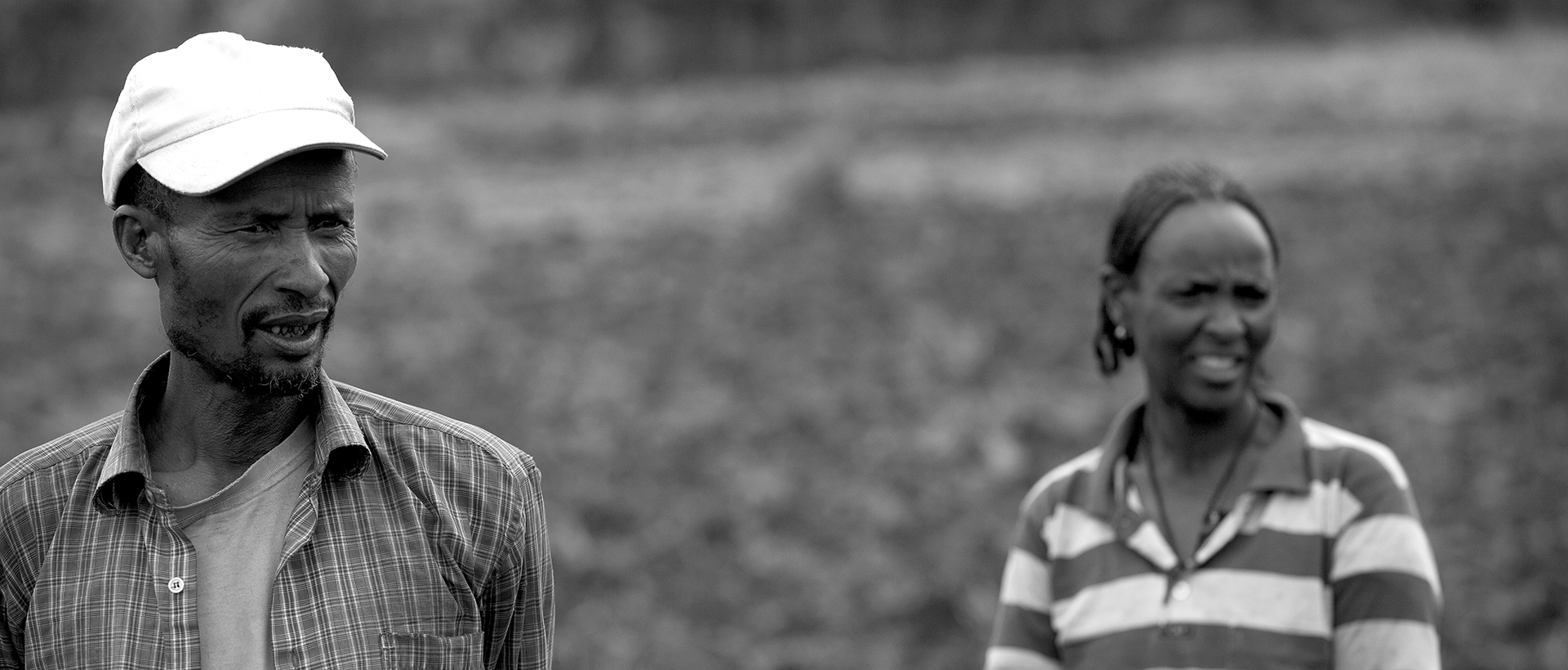
The optimism of young men like Barakat has unnerved the governments of rich countries almost as deeply as the nihilism of young al Qaeda recruits. Europe, especially, has sought to combat migration by pouring hundreds of millions of dollars into law enforcement and immigration services in key source and transit countries.
In May, the German newspaper Der Spiegel reported on a secret European Union plan to help Sudan set up detention facilities and train its border police. Sudanese President Omar al-Bashir faces charges of genocide and crimes against humanity at the International Criminal Court, but Western governments are happy to work with him to keep unwanted migrants from washing up on their shores. The EU has also tried to persuade would-be migrants to stay at home by helping to create jobs and raise living standards in Africa. Its $2 billion “Emergency Trust Fund” for the continent, unveiled in November, seeks to combat the “root causes” of migration by “promoting economic and equal opportunities, security, and development.”
Yet most migration experts predict that the number of Ethiopians headed abroad for work will increase in the coming years no matter what Europe does. The country is set to continue its impressive growth trajectory, according to the World Bank’s most recent projections, but it’s still at a fairly low level of development. Per capita income is just $550. In a 2014 survey published by the Center for Global Development, the economist Michael Clemens found that migration tends to increase in tandem with development until countries reach middle-income status (a per-capita income of roughly $7,500). In other words, European efforts to foster development in places like Ethiopia may actually accelerate migration before tamping it down. Ethiopia has a population of close to 100 million, but less than 1 percent have migrated abroad. By contrast, roughly 10 percent of Mexicans and Filipinos have left home in search of work.
With ongoing economic development in Ethiopia, people acquiring more resources, I would expect more people to migrate
“With ongoing economic development in Ethiopia, people acquiring more resources, I would expect more people to migrate,” said Frouws, of the Regional Mixed Migration Secretariat. They will have “more aspirations” to migrate and “more resources to pay for it,” he said. “It will take a long time before their labor market can accommodate such a large population.”
Current migration trends suggest that the bulk of new migrants from the Horn of Africa will seek their fortunes elsewhere on the continent. Most African migration is and always has been intracontinental. Many people will undoubtedly take the Southern Route. But unless avenues for legal migration are expanded, they will be condemned to use the same dangerous smuggling routes that failed Mishamo and his brother Abraham. Many will end up in detention for long periods. Some will die.
“You should see how these migrants are packed into the trucks. It’s a wonder any of them survive,” said Charles Mwenge, the chief of police in Marsabit, who arrested Mishamo in February.
Efforts to dissuade would-be migrants with public information campaigns seem equally unlikely to succeed. In Hosaena, Abraham told me he had seen a government broadcast warning about the dangers posed by smugglers and that he was aware of the threat of xenophobic violence in South Africa. He said the potential upside of better economic opportunities outweighed the risks. Virtually everyone I spoke to in Hosaena said the same thing.
“When you have dreamed your whole life of going to South Africa, what does it mean that you might be arrested or even that you might die?” Abraham asked. “It means nothing until you have been there.”
On a crisp Sunday in May, I was sitting with Fanna, of the Ethiopian Community Association of South Africa, in a café in Little Addis Ababa, in downtown Johannesburg. We sipped thick Arabica coffee from thimble-sized cups as old men deep in conversation at the cheap plastic tables around us laughed and slapped one another’s backs. It was 2 p.m., but the commerce on the street had already started to die down. By 2:30 p.m., the owner of the café was stacking chairs and hurrying customers to the door. Crime is so bad in downtown Johannesburg that many businesses lock up hours before sundown, Fanna explained.
“This is a hard place,” he said. “A lot of people had false expectations” about South Africa, but when they arrive “they find it’s a struggle to survive.”
I asked Fanna why he thought so many continued to risk everything to get to a place where jobs were scarce and foreigners were sometimes attacked. Why didn’t more accurate information about South Africa make it back to Ethiopia? He reformulated my question and asked it back to me: “Why are people only listening to success stories?”
I suggested that perhaps the success stories were drowning out the stories of hardship and suffering, since people who are locked away in jail or are dead can’t send word back home. Fanna said he agreed that might be part of it, but he had another theory.
“If you want to believe in something, you block out those things” that undermine that belief, he said. “I think a lot of people want to believe.”
